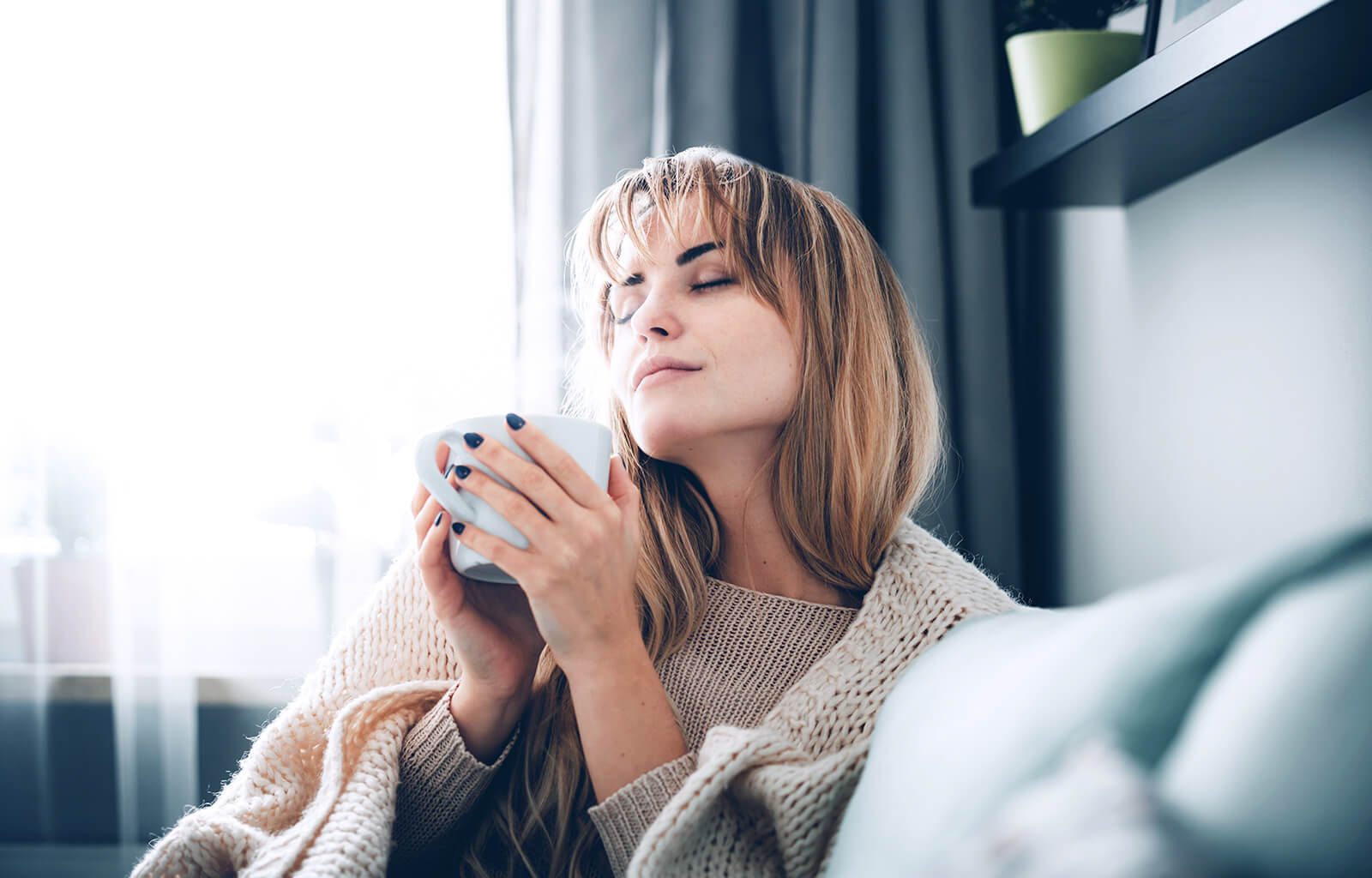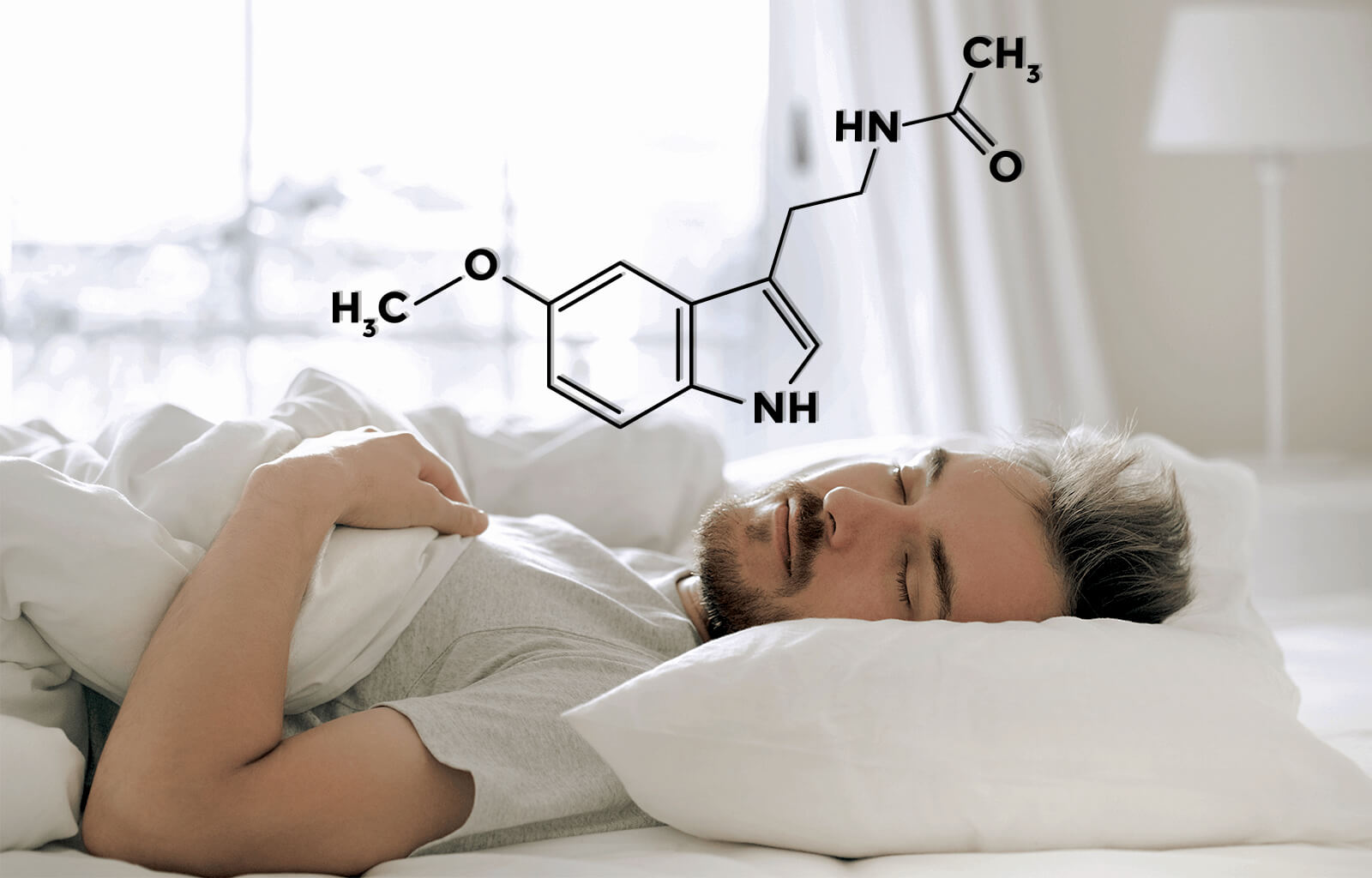
Better relax - 5 calming plant extracts
More than 60% of Germans feel stressed in their daily lives. In addition to numerous negative effects on health and well-being, stress also disrupts sleep and contributes to difficulty falling asleep and insomnia. Learn here which herbal extracts relieve stress symptoms, best support the relaxation process, and prepare you for restful sleep.
Table of contents
- How harmful stress is
- Stress, relaxation & sleep
- The 5 best plant extracts for relaxation
1. How harmful stress is
Stress is omnipresent in today's society and now affects more than 60% of the population. When we perceive something as stressful varies from person to person and can have numerous internal and external triggers. According to a study by Techniker Krankenkasse, work, leisure, family life, and financial worries are among the most common reasons for experiencing stress. In the long term, this harms both our physical and mental health, disrupts our daily well-being, and also negatively impacts our sleep.Stress and a lack of relaxation before bedtime disrupt the much-needed nighttime regeneration process, preventing the body from recovering sufficiently. How exactly does persistent stress affect our sleep and our ability to fall asleep?
2. Stress, relaxation & sleep
Stress basically describes our body's reaction to a negative stimulus. Our brain then signals the body to prepare for stress and releases increased amounts of hormones Cortisol, noradrenaline and adrenaline These cause, among other things, increased fat and blood sugar levels, increased blood pressure, and the body to be put on alert.
Cortisol also plays an important role in regulating our sleep-wake rhythm and functions as a kind of antagonist to the well-known sleep hormone melatonin. Melatonin It makes us tired in the evening and prepares the body for rest. Melatonin levels drop overnight, and our body produces increased amounts of cortisol, which is responsible for us becoming active again and waking up in the morning after sleep.

If we feel stressed before going to bed, cortisol levels rise precisely when the body needs to rest. This often leads to difficulty falling asleep and promotes sleep and concentration disorders, which in turn negatively impacts sleep and its important function for health, well-being, and performance.
Certain plant-based extracts can naturally support relaxation and help gently relieve stress and tension. This is especially important in the evening to quickly fall into a restful sleep. That's why today we're introducing you to five plant extracts that can help you unwind after a stressful day and prepare your body for sleep.
These articles might also interest you:
Tips for relaxation before sleep
3. The 5 best plant extracts for relaxation
hop

Most people know hops primarily as the main ingredient in beer.Because hops are said to have a calming and soporific effect, extracts from the hop plant have been used for centuries to relieve restlessness and anxiety, nervous tension and sleep disorders.
» How hops work
Hops are particularly rich in healthy tannins and bitter substances, with the bitter substances humulone and lupulone being particularly important for the plant's sleep-inducing and relaxing effects. Studies also show that hops can have a calming effect on the central nervous system.
Especially in combination with other calming substances such as lemon balm, lavender or valerian, hops are said to have a calming effect and promote relaxation.
St. John's wort
St. John's wort is one of the most well-researched natural sedatives, with its relaxing and mood-enhancing effects proven in numerous studies. St. John's wort offers natural support against anxiety and restlessness, as well as mild to moderate depression.
» How St. John's Wort Works
The effect of the St. John's wort plant can be attributed to its components' positive effects on hormone balance, particularly serotonin, known as the happiness hormone. Since serotonin, in turn, is crucial for melatonin production, the herb not only has a mood-enhancing effect but also supports the body's natural sleep-wake rhythm. St. John's wort thus provides greater relaxation in times of stress and restlessness and also helps the body naturally prepare for restful sleep.
St. John's wort is also considered safe and well-tolerated, with few known side effects. However, women should be careful, as St. John's wort can impair the effectiveness of the contraceptive pill.
lavender
Lavender is rightly considered one of the most popular herbal sedatives. Extracts from this Mediterranean plant calm the nerves, relieve stress and tension, and promote natural relaxation of body and mind. Lavender is often used to combat restlessness, anxiety, and physical and mental stress, and also supports the body in times of lack of relaxation or depressive moods.
» How lavender works
The constituents of lavender blossoms reduce the release of stress hormones and protect our nervous system from an overload of negative stimuli. At the same time, they influence the production of the happiness hormone serotonin. This has a positive effect on our mood and, in turn, supports the conversion of serotonin into melatonin. Therefore, lavender not only has a calming effect but also promotes healthy sleep and makes it easier to fall asleep.
The balancing effect of lavender extracts calms, reduces stress, and helps with relaxation and preparation for sleep. You can learn more about the effects of lavender in this article read more.

Lemon balm
Lemon balm (also known as lemon balm) is considered a versatile medicinal plant with a calming effect. Studies show that lemon balm extracts can be used successfully to combat the effects of stress, reducing anxiety, tension, and insomnia.
» How lemon balm works
Lemon balm contains, among other substances, essential oils and tannins. These influence important metabolic mechanisms and reduce the activity of nerve cells in the brain.In this way, stress and anxiety signals are perceived and processed less strongly and, on the contrary, relaxation is promoted.
The popular plant serves as a natural relaxant for stress, nervousness, restlessness and difficulty falling asleep and is particularly popular as a tea.
Green tea

Green tea is known for its invigorating effect, which is due to the nerve-stimulating ingredient caffeine. However, numerous scientific studies show that green tea also has a calming effect that can reduce stress and have a balancing and relaxing effect.
» How Green Tea Works
In addition to caffeine and natural tannins, green tea also contains the amino acid L-theanine. L-theanine acts directly in the brain and influences the regulation of certain neurotransmitters that are crucial for our mood, such as noradrenaline and dopamine. Studies have shown that L-theanine has a positive effect on the psyche and reduces susceptibility to stress and anxiety disorders.
In this way, green tea offers natural support against the negative effects of stress, promotes general mood and helps prepare the body for restful sleep.
4. Conclusion
-
Stress is harmful to health, can disrupt sleep and thus reduce important regeneration at night.
-
Hops have a calming and relaxing effect, especially when combined with other substances.
-
St. John's wort is a natural mood enhancer and offers support against anxiety and restlessness, mild to moderate depression and the regulation of a healthy sleep-wake rhythm.
-
Lavender calms, reduces stress and nervousness and helps with relaxation and preparation for sleep.
-
Lemon balm is used as a natural relaxant for stress, nervousness, restlessness and difficulty falling asleep and is often consumed as a tea.
-
Green tea and the L-theanine it contains reduce susceptibility to stress and anxiety disorders and have a balancing and relaxing effect.
Best wishes and see you soon!



Leave a comment
This site is protected by hCaptcha and the hCaptcha Privacy Policy and Terms of Service apply.